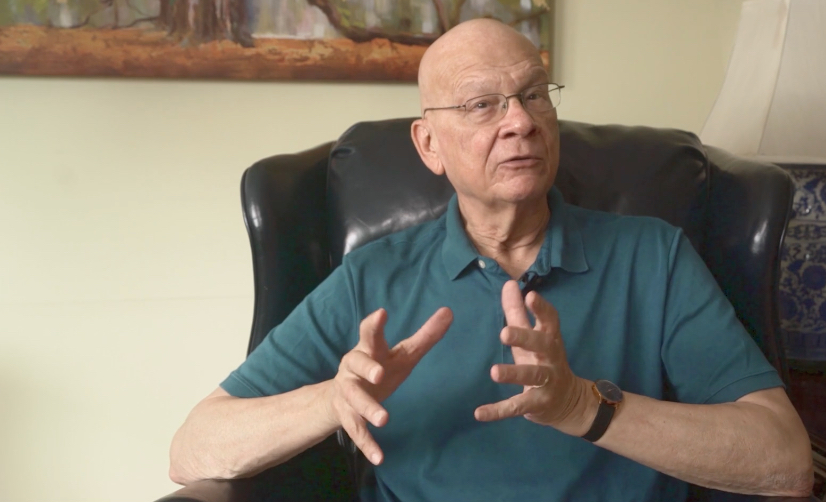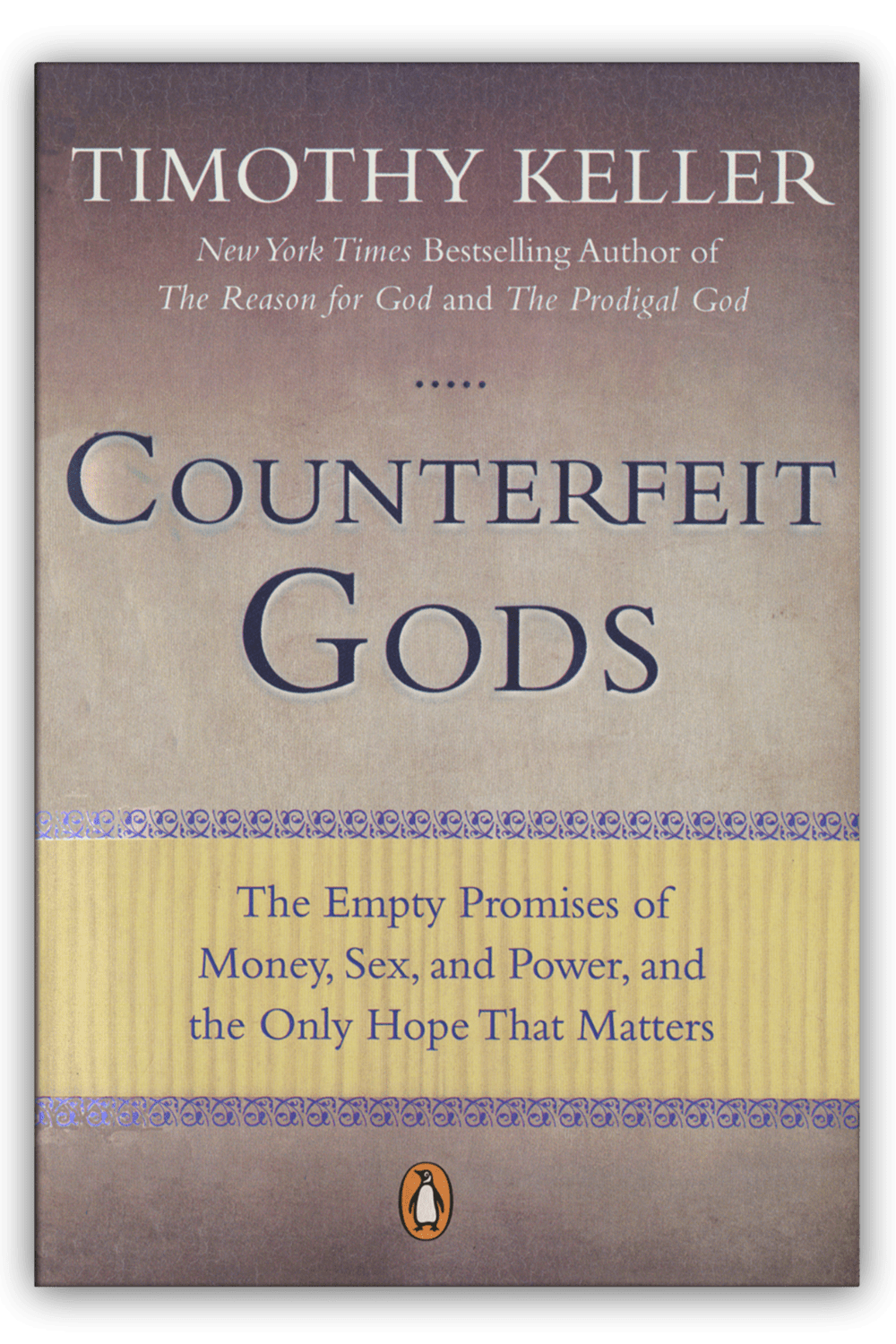To be salt and light in the culture we live in Christians must take the responsibility of developing a humble and thoughtful posture of Christ’s love to bear on societal issues. But how do we do that? Can Christians believe drug addiction is a sin, but disagree about the best way to help those addicted to drugs? Can Christians believe prostitution is immoral, but disagree on which way is the most effective in helping men and women caught up in sex trafficking? Is incarceration the best way to stop it, or is another means more effective?
The truth is, Christians and non-Christians alike take what they think is right about the world and ask others to subscribe to that particular moral vision. If you disagree and say, “I don’t think anyone should impose their moral vision on anyone else,” that is a particular view of morality—we shouldn’t impose morality on others—that, ironically, is an imposition on other moral visions the minute it is vocalized.
The truth is, Christians and non-Christians alike take what they think is right about the world and ask others to subscribe to that particular moral vision.
Christians base their moral vision on the Bible, but when it comes to legislating these biblical morals, how do we pick and choose which ones to pursue and ratify? Generally there will be zero disagreement about legislating our moral vision of Do Not Steal into local law. However, the Bible says idolatry is a sin, and yet most Christians in our society do not want us to make it illegal to worship idols in our country. We want religious freedom. Why do we legislate some biblical principles into public law and not others? The complexity of this question should at least give us humility in the search for an answer, but it also explains much of the vitriol we see in our political social media. [] [1] James Davison Hunter, Carl Desportes Bowman; The Vanishing Center of American Democracy. Advanced Studies in Culture Foundation, 2016.
Christians must start this project of bringing Christ’s love to bear on societal issues by looking at the gospel itself. If we know the good news of what Christ has done for us, and if we know we’re accepted by grace through faith and not by anything else, it will produce gentle humility, and hopeful, civil interactions that lead with humility when talking with people of opposing views. The gospel tells us that we’re both deeply sinful and infinitely loved, which should prevent both pride and self-loathing. It can also make us careful, humble, and thoughtful in how we apply the Bible to the world.
Global Perspective
To begin, we must remind ourselves that we all have biases, cultural blinders, and mistaken intuitions. If we are not careful, we will be too quick to read the Bible superficially and call for “common sense” applications that may make sense to us, but that might only be because of the particular cultural lenses we see life through. One of the greatest tragedies in U.S. history was how many Christians read Paul telling slaves to “obey your masters” and concluded that African chattel slavery was not wrong. Our past should make us circumspect as we wonder whether we may be doing something similar now that only future Christians will see clearly.
We must come to terms with the complexity before us. For instance, consider the political landscape in many countries. How should Christians in Germany vote when there are multiple political parties, with various political platforms, none of which fully hold all Christian values together? In China, there are no political parties that represent what Christians believe and no democratic institutions. How should Chinese Christians go about applying their moral vision to culture? There’s not a clear-cut answer for them. This is why so many Christians in other parts of the world are befuddled by how many American Christians seem to approach the political landscape with such confidence.
Years ago when I was working in the United Kingdom, a young woman once told me, very frankly, that since Christians should care about the poor, we should be willing to have higher taxes in order to meet their needs. I’ve also met many Presbyterians in Scotland who hold to the most literal orthodox understanding of the Christian faith—they don’t even turn on the television on Sunday to protect the Sabbath—and are strict subscriptionists of their confessions. And yet they believe, because of how they interpret the Scriptures, that the best way forward culturally is through a more socialistic view of the state’s responsibility. Indeed, many U.K. evangelical Christians don’t think of the word “socialism” as a dirty word, nor do they think of it as the same as Marxism or Communism. Those aren’t my views, but they are held by genuine believers.
The implications of this diversity of perspective within the broader Christian community are twofold.
1. Differing Political Approaches Should Not Disrupt Christian Unity
First, every culture has a different political system, none of which perfectly aligns with Christian values, meaning we’ll have to use sound judgment and biblical wisdom in how we apply our faith in every context. [] [2] Bruce Ashford, “The Intellectual in Canada Who Unmasked Political Idolatry in America.” The Gospel Coalition, 2017. Second, there are Christians around the world who see things very differently than we do, and unless we’re willing to cut them out of the body of Christ because of their views, we need to demonstrate greater humility than what has been shown in the past.
To be clear, I’m not saying all political systems are equally good, or that all of them would work equally well in our culture. But we shouldn’t push a Christian who holds to a different political view than our own outside the household of God into which he or she has been adopted. We can agree theologically and morally, yet disagree politically and practically. [] [3] Collin Hansen, “Introducing the Good Faith Debates.” The Gospel Coalition, 2022. We can agree on the biblical moral, but disagree about how that moral must be applied in a secular culture.
…we shouldn’t push a Christian who holds to a different political view than our own outside the household of God into which he or she has been adopted.
Here’s an example: Our political parties generally disagree on how to address the negative ramifications of sexual freedom. Is it better in secular culture to promote programs that call for abstinence, or is the best way to hand out birth control? Some believers are against all forms of birth control, knowing it will be used for sex outside of marriage which leads to consumeristic sexual encounters and cultural breakdown, and so they vote one way. Others say, “Do you think lack of access to birth control will actually prevent people from sinning sexually? Wouldn’t you rather prevent sexually transmitted diseases and unwanted pregnancies?” Those Christians vote another way.
What’s going on here? There’s moral agreement—sex outside marriage breaks the 7th commandment—but there’s disagreement over how best to go about applying God’s law to a secular and pluralistic culture. There are many other areas where Christians agree in a moral sense, but disagree with the application of political policy. Therefore in our American democracy, they vote differently. We’re to love the poor and immigrants, but what’s the best way to do this within the political arena?
It’s easy to fall into the trap of over-identifying with any one particular party—even though no political party supports all biblical morals. Some Christians think that in addition to establishing moral absolutes, the Bible also dictates which morals must be applied in every culture across time and place and which ones should not. A quick study of history shows us that’s not been the case. These distinctions must be made in each culture thoughtfully and prayerfully.
Christians in every society must use their wisdom to determine how they will apply the Bible carefully, allowing others to come to different conclusions and use different approaches—all of which are based on biblical inspiration, but none of which comes with an absolute biblical warrant. How freeing is it for the church that we can agree on the moral imperatives, but have a healthy (and even heated!) debate over the application of those morals in culture? This kind of dialogue can be ours if we’re careful and humble and curious in our approach toward each other.
2. Political Involvement Cannot Subvert Our Evangelistic Calling
Second, we need gospel humility so our political involvement doesn’t undermine our witness. The gospel doesn’t come attached to one particular political agenda. If it’s preached as having a single, inevitable political agenda, then listeners will hear the church saying: “To be saved you must repent and believe in Christ and register to vote in this party.” That is gospel plus this particular political view.
No, the Christian life is a holistic enterprise that involves much more than just being “saved” from what’s wrong with the world as seen through one particular political party’s vision. It is about God making all things right, and he’s commissioned humanity to partner with Jesus who is bringing the powers of sin, death, and judgment down. Part of this is undoing the sin that divides, which began with the alienation between Adam and Eve in Genesis 3, is found in Genesis 4 with Cain killing Abel, and ultimately leads to the breaking up of the nations that happened in Genesis 11. But God says, “I gather the people of nations and languages, and they will come and see my glory.” (Isaiah 66:18). Matthew says the same thing when he says, “All the nations will gather before him…” (Matthew 25:32) and that is exactly what we see in Revelation 7:9, “Behold, a great multitude that no one could number, from every nation, from all tribes and peoples and languages, standing before the throne and before the Lamb…”
If the kingdom of God is active in restoring the whole creation, and we are part of this process of going out from and going towards “all nations,” then we’re not allowed to operate without considering the context and social spaces where “all nations” live. This is the reason why Paul preached to the Greeks on Mars Hill differently than he did to the Philippian jailer. He took into consideration those to whom he was speaking.
Tim Keller’s Center Church helpfully details four “seasons” to describe the church’s relationship to culture.
- Spring – The church is in a rough spot but it’s growing as a result of persecution and costly discipleship (China is an example of this), and signs of vibrancy are everywhere.
- Summer – The church is essentially the culture, and Christianity has become “Christendom” (think of most of Western civilization, and current South America).
- Autumn – The influence of the church is in decline, it’s looked at with suspicion, and counter-narratives of how to live the good life are introduced. The church flounders because it has lost the habit of evangelism in the context of Christendom.
- Winter – The church faces open opposition, it’s treated as a net-negative for society, and it’s forced back underground in many ways (think Iran, Iraq, and many Muslim-controlled states in Africa).

These seasons show that Christians must use their wisdom to bring the right application of their moral vision to culture. Depending on the season, historical moment, and social context, we need to be sensitive to how we live out our faith. Recently, there’s been an interesting internal debate among Christians about what posture the church should have moving forward. [] [4] Samuel D. James, “Is it Time to Move Past Tim Keller?” Digital Liturgies, Substack, 2022. Michael Graham has written about how American evangelicals are splitting based on cultural positions, even where we might have the same theological convictions. [] [5] Michael Graham, “The Six Way Fracturing of Evangelicalism.” Mere Orthodoxy, 2021. This illustrates why we need not only strong theological convictions, but also a framework for how to apply these convictions to the culture in our current season. Many Americans are realizing what we in New York City have known for some time: the church is no longer in summer, rather, we’re solidly in autumn. The model we’ve used here in NYC for decades is now more applicable than ever before to the rest of America.
Cultural Posture
How do we do this? We need to be both humble and curious. We will talk past each other and misunderstand each other if we aren’t clear. All Christians at all times are called to hold our moral convictions, but we must allow for variance in the many different ways we live out these moral convictions politically and socially. Christians are to be concerned about injustice and the poor and also support for the nuclear family and wholesome sexuality. We should be involved politically, but never allow politics to define the church lest anyone believe that to be converted you must believe in Jesus and become members with this political party over here. If we don’t clearly distinguish that our faith is totally and utterly separate from any political affiliation we’ll harm our witness in the world and confuse the next generation of children in our churches.
If we don’t clearly distinguish that our faith is totally and utterly separate from any political affiliation we’ll harm our witness in the world and confuse the next generation of children in our churches.
In all things we must obey Jesus, beginning with his desire to save his enemies, even at the cost of his own life. If we seek to reflect the way Christ lived, we’ll find ourselves counter-culturally dying and serving those who don’t understand us or know us. If we experience exclusion, we know God will still be with us (Matthew 5:10–11), and that some will see our “good deeds and glorify God” (1 Peter 2:11–12). This Christian understanding of how to be in culture allows us to love those who will reject us without rejecting them. Jesus gave himself for others, calling his own heart gentle (Matthew 11:29), and he provides a powerful reminder for how we are to live now with “gentleness and respect” (1 Peter 3:15). This means we’re not kind, gentle, long-suffering just to get a hearing in our culture or because “it works,” but rather because we want to reflect the love of Jesus. Let’s work together to bring the light of the gospel to a culture that desperately needs it, and let’s do so thoughtfully, graciously, sensibly, and with unity.





